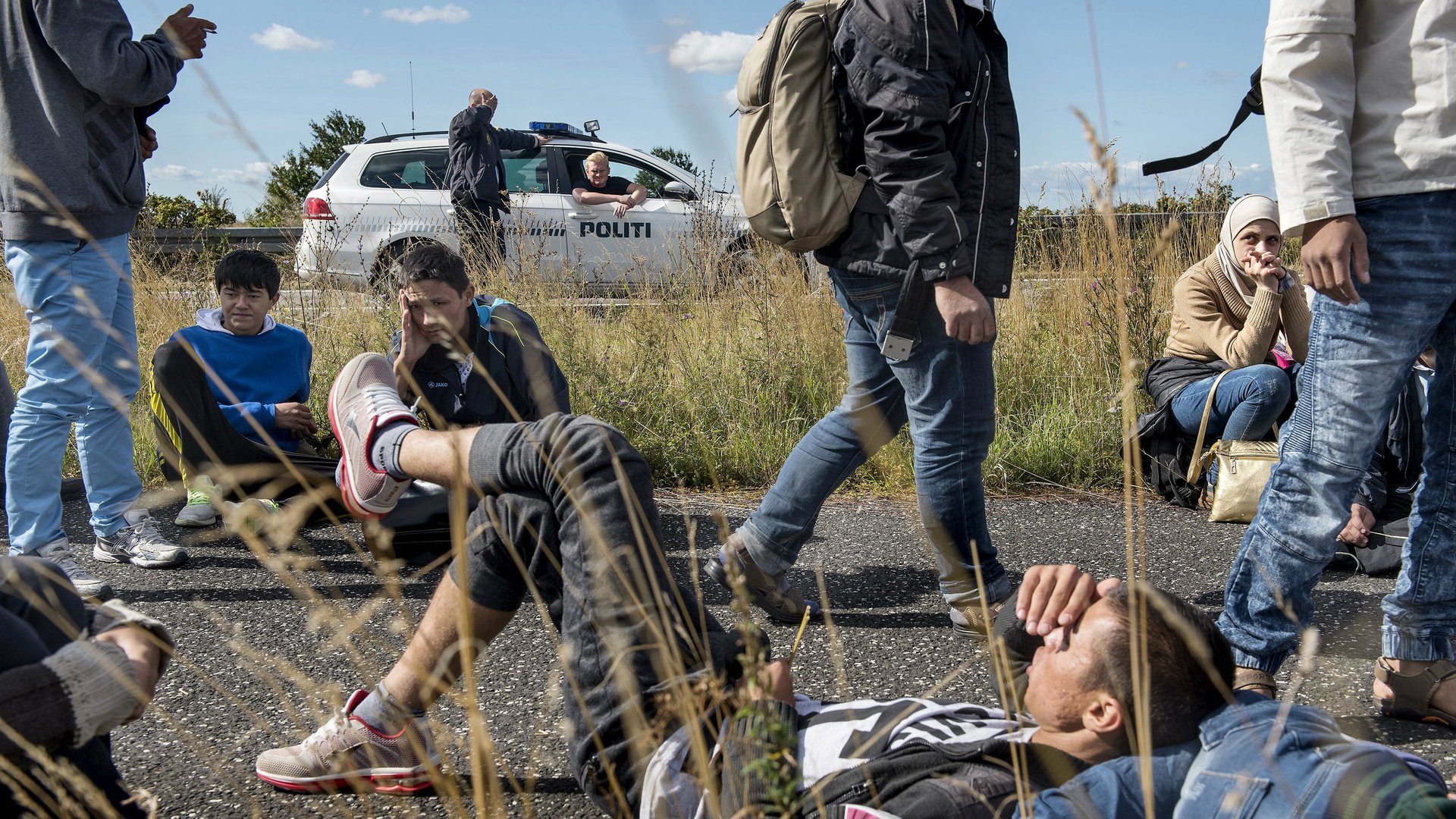The ethical absurdities of prosecuting good samaritans who give rides to refugees
Denmark, the socialist nation so often praised by US Democrats, is not quite so utopian for migrants arriving in the current refugee crisis. The government has warned of cuts to refugee benefits in advertisements in Lebanese newspapers and allowed police to confiscate refugees’ valuables in an attempt to reduce its intake of refugees. And, in recent months, the government has gone after good Samaritans who give refugees a car ride—prosecuting them as “human smugglers.”


Denmark, the socialist nation so often praised by US Democrats, is not quite so utopian for migrants arriving in the current refugee crisis. The government has warned of cuts to refugee benefits in advertisements in Lebanese newspapers and allowed police to confiscate refugees’ valuables in an attempt to reduce its intake of refugees. And, in recent months, the government has gone after good Samaritans who give refugees a car ride—prosecuting them as “human smugglers.”
This week, the Washington Post reported, a 70-year-old grandmother, Lise Ramslog, was on a barefoot stroll when she saw exhausted asylum-seekers walking along the highway. She ended up giving them a car ride to their Swedish destination, a decision so spontaneous that she didn’t even pause to put on a pair of shoes before heading off on the 120-mile journey. But Ramslog’s good deed resulted in her being convicted of human smuggling.
The decision “shows a fundamental lack of decency,” says Joseph Carens, a political science professor at the University of Toronto with a focus on immigration ethics. Human smuggling laws are designed to prevent people from exploiting others for profit and putting them at risk, he says, not to punish such decent behavior.
“It undermines the whole idea of a serious use of a principle of legal order and the purpose of the law,” he says.
Kieran Oberman, a fellow in politics at Edinburgh University, points out that under international law, refugees should be allowed to find places of sanctuary and, from this perspective, Danish citizens who help are doing a valuable good deed.
And yet, there are contradictions inherent to the system, he says. For one, there are no laws to help refugees arrive at their destination. “Refugees have some rights once they’ve arrived in a country, the most important of which is that they cannot be sent back to where they could be harmed,” he says. “But they have very few rights as to accessing countries.”
It’s this inconsistent legal situation that results in ethical absurdities such as Denmark’s decision to prosecute citizens who give rides to refugees. Chandran Kukathas, a professor of political theory at London School of Economics, says Denmark’s decision to prosecute is “entirely predictable” given the legal options.
He points out that smuggling, which involves consensual transport though usually for a steep price, is distinct from trafficking, where the passengers are unwilling and abused. But says that Denmark’s decision is nevertheless “absurd.”
Applied broadly, says Kukathas, the decision to prosecute in this way makes little legal, moral, or practical sense. Most illegal immigrants arrive by air and simply overstay their welcome. “Would this mean you’d call every airline that transported people in smugglers?” he asks.
This is simply an “underhand” tactic to prevent legitimate refugees from traveling through Europe, he says. And, in bringing the prosecutions, Denmark will likely have scared the public and deterred them from such acts of generosity—and thereby achieved their goal.